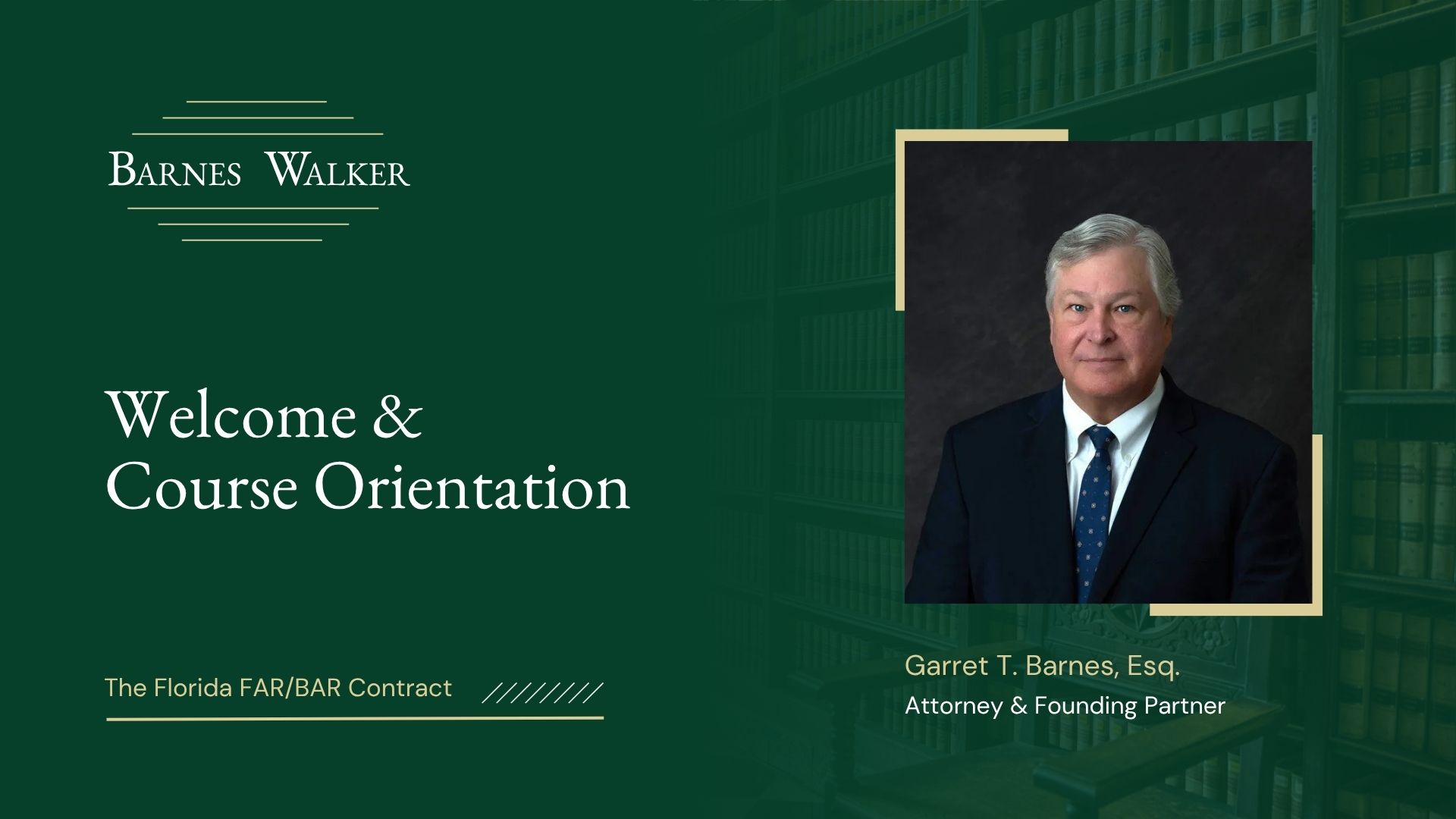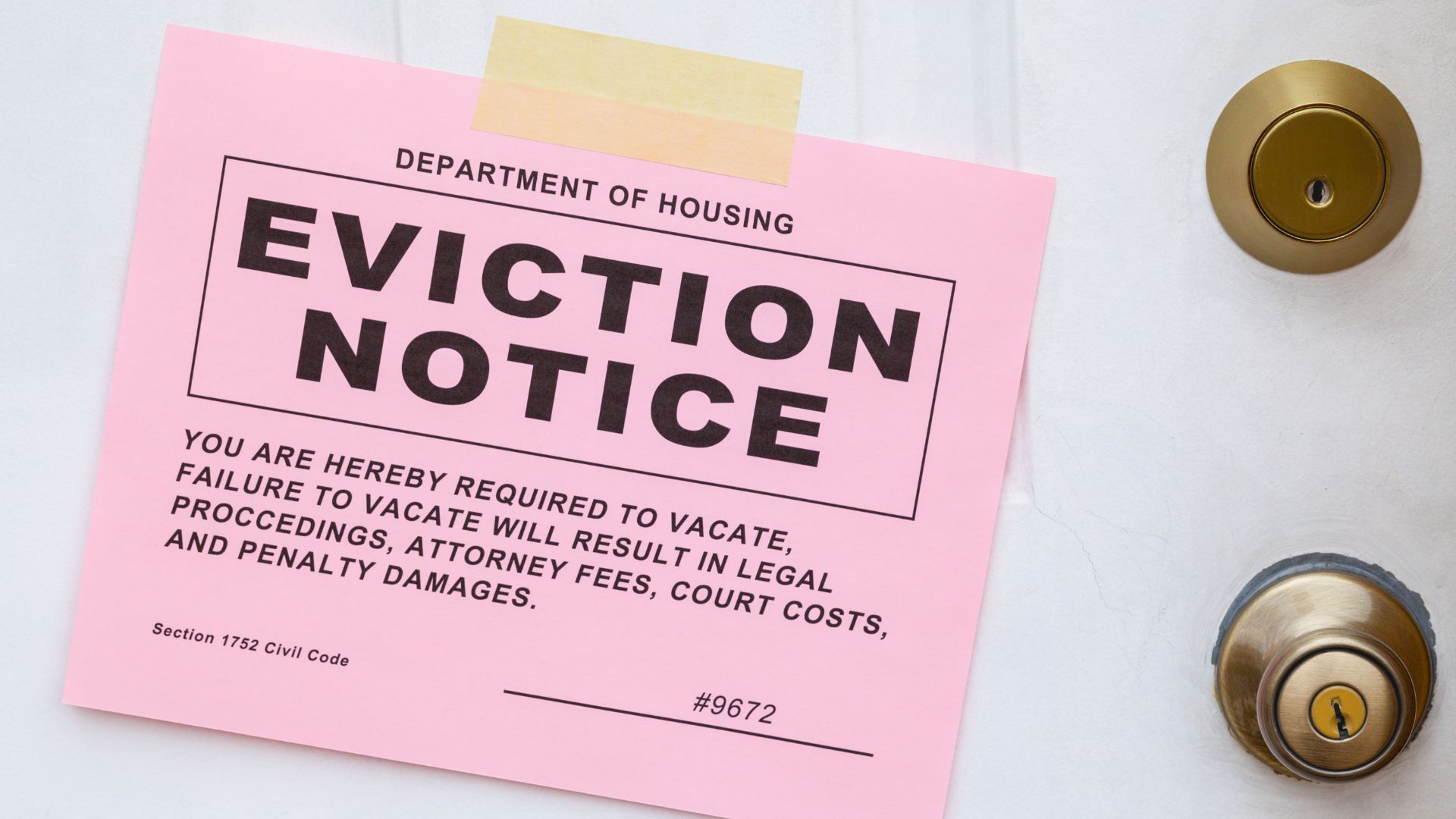
Decoding the Documentary Stamp aka: ‘Doc Stamp’: Tax
You’re at the closing table. The stack of paper in front of you seems to have its own gravitational pull. You’ve reviewed the mortgage, the note, and the deed. You’re scanning the closing disclosure, and your eyes land on a line item that wasn’t on the “estimated” sheet: Documentary Stamps.
It’s a significant number. But what is it? Is it a fee for the title company? A notary charge?
Welcome to the “surprise guest” at nearly every Florida real estate transaction. The documentary stamp tax, or “doc stamps” as it’s universally known, is one of the most misunderstood (and unavoidable) closing costs.
At Barnes Walker, we believe a smooth transaction is an informed one. So, let’s pull back the curtain on this mysterious tax, explain what it is, how it’s calculated, and why it can sometimes get complicated.
What Exactly Are Documentary Stamps?
First, let’s clear up what it’s not. It is not your annual property tax bill (that’s ad valorem tax). It is not a fee for services rendered by your closing agent or attorney.
The documentary stamp tax is an excise tax levied by the state of Florida.
Think of it as the state’s “toll” for making your transaction official. It’s the price of admission for recording your documents (like your deed and mortgage) in the public record. This tax is the government’s way of collecting revenue on real estate transfers and financial agreements.
In Florida, this tax is split into two main categories, and in a typical home purchase, you’re likely paying both.
Part 1: The ‘Doc Stamp’ on Your Deed (The Transfer)
This is the big one. This tax is paid when an interest in real property is transferred. The official document is the deed.
- The Rate: The tax is levied at a rate of $0.70 per $100 (or fraction thereof) of the total “consideration.”
Wait, what’s “consideration”? This is the single most important concept to understand, and we’ll cover it in a minute.
(The Big Exception: Florida has one major outlier. If your property is in Miami-Dade County, the rate is different. It’s $0.60 per $100, plus a surtax of $0.45 per $100, for a total of $1.05 per $100. This is a prime example of why working with a local professional is so important!)
Part 2: The ‘Doc Stamp’ on Your Note (The Mortgage)
If you’re getting a loan to buy your property, you’re signing a promissory note. This note is the legal document that represents your debt. Florida levies a separate doc stamp tax on this document.
- The Rate: The tax on notes and written obligations to pay money is $0.35 per $100 (or fraction thereof) of the mortgage amount.
This tax is capped. The maximum documentary stamp tax due on a note is $2,450. (The tax on the deed has no cap).
The Most Important Word in Real Estate: “Consideration”
This is where the math gets tricky and where many people get tripped up.
For documentary stamp tax purposes, “consideration” is NOT just the sales price or your down payment. The Florida Department of Revenue defines consideration as the total amount paid (or agreed to be paid) for the property.
This includes:
- Money you pay (your down payment and loan amount).
- The discharge of an obligation.
- The amount of any mortgage on the property—whether you are assuming the seller’s mortgage or getting a new one.
Let’s look at a simple example.
Simple Transaction: You buy a home for $400,000. You get a new mortgage for $350,000.
Your Doc Stamp Calculation:
- On the Deed: The full purchase price is the consideration.
- ($400,000 / 100) x $0.70 = $2,800
- On the Note: The tax is based on your loan amount.
- ($350,000 / 100) x $0.35 = $1,225
Total Doc Stamps Due: $2,800 + $1,225 = $4,025
As you can see, this tax is a significant part of your closing costs. The consideration is the full $400,000, not just the “equity” or the cash you brought to the table.
The “Uh-Oh” Scenarios: When Doc Stamps Get Complicated
The simple home purchase is straightforward. But what about other transfers? This is where people often get a surprise bill from the county. The tax is due anytime an interest is transferred for consideration, even without a traditional “sale.”
1. “I’m just moving my property into my LLC.” This is a common move for asset protection. But, if the property has a mortgage, the state views this as a taxable event.
- The Rule: If you transfer your mortgaged property to your LLC, doc stamps are due on the unpaid principal balance of the mortgage at the time of the transfer. Why? Because the LLC is now (in theory) taking on that obligation, which counts as “consideration.”
- If there is no mortgage? If the property is owned free and clear, the transfer to your own LLC is generally for nominal consideration (e.g., $10) and the doc stamp tax would be minimal (e.g., $0.70).
2. “I’m just adding my spouse (or child) to the deed.” This seems simple, but the mortgage rule still applies.
- The Rule: If you add someone to a deed and there is an outstanding mortgage, you will owe doc stamps. The tax is based on the new owner’s percentage of the outstanding mortgage balance.
- Example: You add your new spouse to the deed, giving them a 50% interest. The mortgage balance is $200,000. You owe doc stamps on 50% of that balance ($100,000). That’s a $700 tax ($100,000 / 100 x $0.70).
3. “I’m just gifting this property to my kids.” A true gift is not a taxable event. But “gift” has a very strict definition.
- The Rule: If the property is 100% free and clear (no mortgage, no liens, no money changing hands), you can transfer it as a gift and only pay the minimum doc stamp tax.
- The “Gotcha”: If the property has a $150,000 mortgage, and your kids “take over” that mortgage, you haven’t “gifted” the property. You’ve transferred it for a consideration of $150,000, and doc stamps will be due.
4. “This is part of our divorce.” Florida law provides some specific, and helpful, exceptions here.
- The Rule: If a property transfer is part of a divorce proceeding (dissolution of marriage), it is generally not subject to the documentary stamp tax. This also applies to homestead property transferred between spouses.
5. “I’m putting my home into a Living Trust.” This is a very common and smart estate planning tool.
- The Rule: If you transfer your property into a trust where you are the beneficiary (e.g., a standard revocable living trust), this is not a taxable event, even if there is a mortgage. Why? Because you haven’t really transferred the beneficial ownership to someone else. It’s still “yours.” The rules can get complex, however, if the trust has multiple beneficiaries who are not the original owners.
The Bottom Line: Don’t Be Surprised
The documentary stamp tax is a simple concept that can become incredibly complex in practice. The rules are rigid, and the “consideration” net is cast very wide, capturing far more than just a traditional sale.
A simple quitclaim deed you download online can trigger thousands of dollars in taxes if not handled correctly. This is precisely why “DIY” real estate transfers are so risky.
Before you add a name, transfer to an LLC, or gift a property, it is essential to speak with a qualified real estate attorney. At Barnes Walker, we guide our clients through these “what ifs” every single day, ensuring that your transaction is not only smooth but that you are never caught by surprise.
Disclaimer: The information and opinions provided are for general educational, informational or entertainment purposes only and should not be construed as legal advice or a substitute for consultation with a qualified attorney. Any information that you read does not create an attorney–client relationship with Barnes Walker, Goethe, Perron & Shea, PLLC, or any of its attorneys. Because laws, regulations, and court interpretations may change over time, the definitions and explanations provided here may not reflect the most current legal standards. The application of law varies depending on your particular facts and jurisdiction. For advice regarding your specific situation, please contact one of our Florida attorneys for personalized guidance.
Visit our legal department pages:
Real Estate Attorneys
Business Attorneys
Litigation Attorneys
Estate Planning Attorneys
Inheritance Attorney
Probate Attorney
Probate & Trusts
Trust • Experience • Results
Ready to Get Started?
Get started with Barnes Walker today.












